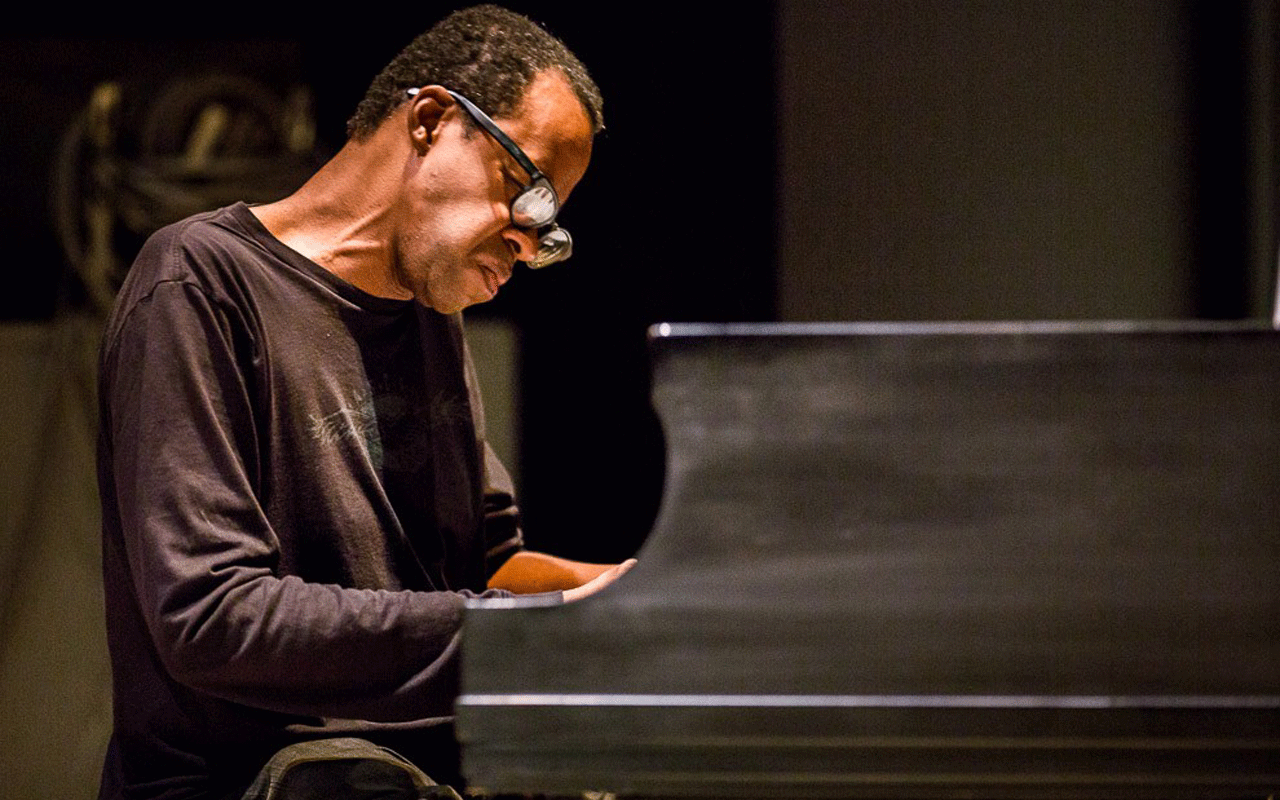
Photo of Matthew Shipp by Daniel Sheehan
Monday, December 4, 7:30pm
PONCHO Concert Hall
710 E Roy St
$10–20
Earshot Jazz is pleased to present pianist/composer Matthew Shipp in trio with Michael Bisio and Newman Taylor Baker on Monday, December 4, at Cornish College of the Arts.
Matthew Shipp’s illustrious career has been about as diverse as any free jazz-leaning pianists career can be. This is noteworthy because only a handful of players who start their careers in the free jazz realm branch out to other forms—especially more popular forms. Shipp has worked with the hip-hop collective Antipop Consortium, producer El-P, and DJ Spooky. He has also collaborated on a film project with the painter/filmmaker/creative activist Barbara Januszkiewicz. Yet these collaborations are really extensions of his work honing his improvisational language with free jazz giants. The list of names of adventurous improvisers with whom Shipp has worked is impressive: Roscoe Mitchell, Joe McPhee, William Parker, Wadada Leo Smith, Joe Morris, Evan Parker, and David S. Ware (for over a decade, Shipp added harmonic and textural depth to Ware’s moody free jazz quartet albums), among others.
When Shipp’s trio comes to PONCHO Hall, they’ll be supporting their newest trio record, Piano Song, which is a release full of the ethereal lyricism for which Matthew Shipp has become known. On the album (and for the concert) bassist Michael Bisio and drummer Newman Taylor Baker join Shipp. Earshot regulars will remember Bisio’s intimate and passionate duo performance with cornetist Kirk Knuffke last year at the Seattle Art Museum. Newman Taylor Baker is known for his work with adventurous, canonical jazz improvisers Henry Threadgill, Henry Grimes, and Leroy Jenkins, as well as his recent exploration of the washboard. Baker has described his approach to the washboard as outside of how it’s traditionally played, but his investigation of the early American instrument indicates his interest in American music—especially Black-American music—on a broader scale.
The strong connection between Shipp and Baker on Piano Song is no doubt partially due to each of their musical explorations outside of jazz. It also might give some insight into how Shipp sees the many facets of his music-making fitting into a larger historical context. It’s a big question: how an artist sees their own work in a historical context—a question that might be best left to the artist to sift through internally. Shipp has probably considered it at length. But it’s helpful for listeners to consider as well, in order to more deeply understand Shipp’s (and his trio’s) approach to the music.
The exciting thing about Shipp’s composition and improvisational approach is that the pieces reveal their truth as they unfold—nothing is prescribed or taken for granted. Each note that is plucked or struck, each cymbal hit or snare interjection, is considered for its rhythmic, harmonic, melodic, and timbral implications in the larger form. It is these implications through which Shipp and his trio wade, swim, and dance. Sometimes you can hear their uncertainty, not in their musical decisions, but in their surrendering to the unknown of how the piece will unfold. The magic of this trio lies in that surrendering, and the fact that they let us, the lucky audience, in on this timeless process.
Tickets are $20 general admission; $18 Earshot members & seniors (60+); $10 students & military/veteran. Tickets and more information available at earshot.org.
–Levi Gillis